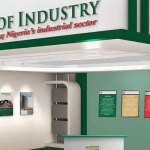The International Finance Corporation (IFC) has announced a significant equity investment of up to $50 million in Lagos Free Zone Company to accelerate the development of Nigeria’s first private special economic zone linked to a deep-sea port. This investment aims to address Nigeria’s critical infrastructure gaps, attract local and global businesses, and drive economic diversification.
The funding will be directed towards the first phase of the Lagos Free Zone, a large-scale industrial hub spanning 860 hectares. Owned by Singapore-based Tolaram, a multinational group with a strong presence across Africa, Asia, and Europe, the Lagos Free Zone is designed to provide an integrated industrial ecosystem. It is strategically connected to the Lekki Deep Sea Port, enabling efficient import and export operations while positioning Nigeria as a key player in global trade.
Nigeria’s economy is projected to grow by 3.7% by 2026, and investments in infrastructure are essential to sustaining this momentum. IFC’s investment in the Lagos Free Zone is expected to strengthen Nigeria’s industrial base, create employment opportunities, and enhance the country’s role in global value chains.
Once fully operational, the Lagos Free Zone is expected to generate approximately 30,000 direct, indirect, and induced jobs, significantly boosting employment in Nigeria. It will also contribute to economic growth by attracting multinational corporations and local businesses seeking a well-developed industrial hub with access to world-class logistics and port facilities.
IFC’s Regional Director for Central Africa and Anglophone West Africa, Dahlia Khalifa, emphasized the transformative potential of this project. “This investment reflects IFC’s commitment to fostering inclusive economic growth and sustainable development in Nigeria. Lagos Free Zone is poised to become a transformative hub for industrial activity, driving job creation and enhancing Nigeria’s competitiveness in global markets. We are proud to partner with Lagos Free Zone in building the infrastructure necessary to attract global and local businesses, enabling Nigeria to achieve its full economic potential,” she said.
Beyond industrial expansion, the IFC’s investment aligns with its broader goal of promoting sustainable and climate-resilient infrastructure. Approximately 15% of the investment is earmarked for climate-related initiatives, including the development of green infrastructure, energy-efficient industrial buildings, and climate-adaptive logistics facilities.
The Lagos Free Zone will feature EDGE (Excellence in Design for Greater Efficiencies)-certified buildings, ensuring high environmental standards in industrial and commercial spaces. This sustainability-focused approach reflects global trends in industrial development, where companies are increasingly prioritizing green infrastructure to reduce their environmental footprint while enhancing operational efficiency.
The investment in Lagos Free Zone further strengthens Nigeria’s appeal as an attractive destination for foreign direct investment (FDI). The zone’s integration with Lekki Deep Sea Port enhances its competitive advantage, offering businesses seamless access to international markets. This development aligns with Nigeria’s long-term economic vision, which prioritizes industrialization, trade expansion, and job creation.
Speaking on the investment, Lagos Free Zone Company expressed optimism about the impact of IFC’s support. “IFC’s support represents a significant and positive recognition of our vision to establish Lagos Free Zone as a world-class industrial hub. This investment allows us to scale up the existing infrastructure to attract more foreign and local tenants while promoting sustainability,” the company stated.
With Nigeria seeking to reduce its reliance on oil revenues and expand its manufacturing and export-driven sectors, initiatives like the Lagos Free Zone play a crucial role in economic diversification. The special economic zone is expected to attract industries in manufacturing, logistics, agro-processing, and technology, creating a more balanced and resilient economy.
As the Lagos Free Zone continues to expand, its success could set the stage for similar industrial projects across Nigeria, driving nationwide industrialization and positioning the country as a key player in Africa’s trade and investment landscape.
With IFC’s backing, the Lagos Free Zone is on track to become a major driver of industrial development, job creation, and economic transformation in Nigeria, reinforcing the country’s position as a leading economic hub in Africa.










